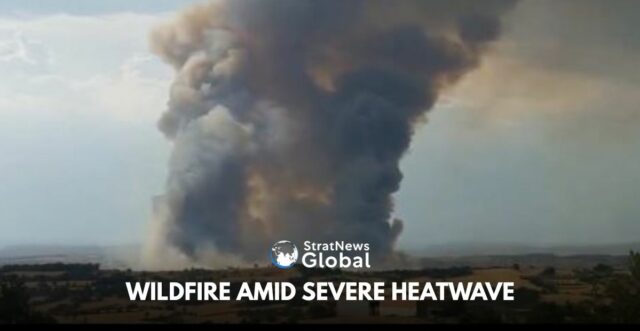Two people lost their lives in a wildfire that broke out in Spain’s Catalonia region a day earlier, emergency services and officials confirmed. While the blaze was mostly contained, authorities warned of incoming winds and thunderstorms on Wednesday, as much of Europe continued to struggle with an extreme heatwave.
The blaze in Torrefeta broke out in a farming area on Tuesday afternoon, destroying several farms, and affecting an area stretching for around 40 kilometres (25 miles), firefighters said, adding there were no other casualties.
“The fire was extremely violent and erratic due to storms and strong winds, generating a convection cloud that complicated extinguishing efforts,” the fire service said in a statement.
Authorities warned that more storms were expected on Wednesday afternoon and urged vigilance.
“Please exercise caution and follow all instructions and recommendations from the emergency services,” Catalonia’s regional leader Salvador Illa said in a post on X.
Around 14,000 residents were asked to remain indoors for several hours on Tuesday.
Extreme Heatwave
The Catalonia wildfire comes as Europe faces an “exceptional” heatwave, prompting heat alerts through the region.
Spain’s meteorological agency AEMET, which earlier this week reported its hottest June on record, issued warnings for high temperatures, storms and high winds across much of the Iberian Peninsula on Wednesday.
Health alerts were issued in France, Spain, Italy, Portugal and Germany. Even the Netherlands, used to a milder climate, issued a warning for high temperatures in the coming days, coupled with high humidity.
“Large parts of Western Europe are experiencing extreme heat and heatwave conditions that are normally observed in July or August, rather than June,” said Samantha Burgess, Strategic Lead for Climate at the EU’s Copernicus Climate Change Service.
Temperatures were in some locations 5-10 degrees Celsius warmer than they otherwise should have been at this time of the year, she said.
Heat can affect health in various ways, and experts are most concerned about older people and babies, as well as outdoor labourers and people struggling economically.
(With inputs from Reuters)





